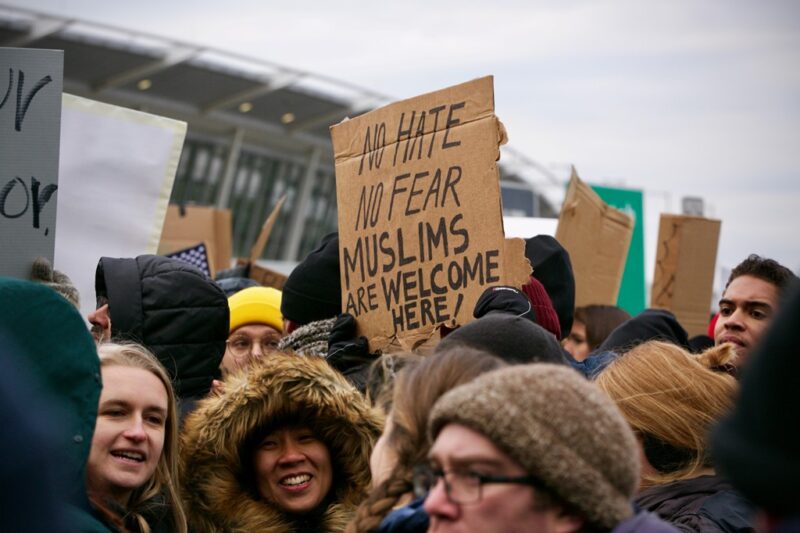Universities Should Protect Students’ Right to Protest, End Crackdown on Peaceful Protests
WASHINGTON – College and university presidents across the U.S. need to respect and protect the right to protest in support of Palestinian rights the American Civil Liberties Union, Amnesty International, and Human Rights Watch said today in an open letter.
For months the organizations have raised concerns about the potential use of unlawful force when university administrators call in law enforcement officers to break up demonstrations on campus. This new letter comes after reports of heavy-handed and excessive force by some campus police and local law enforcement against peaceful protests and encampments across the country.
The groups provide recommendations for colleges and universities to ensure they protect the right to protest on their campuses. The organizations also urge university administrations to refrain from taking any further measures to suppress student protests on campus, including stopping the use of so-called less lethal weapons and ensuring that coercive police power is used only as a last resort, among other recommendations.
“Universities are responsible for protecting both physical safety and free expression on campus,” said Jamil Dakwar, director at the ACLU’s Human Rights Program. “It’s deeply concerning to see universities needlessly expose students to police violence for peacefully expressing their political opinions. We’re urging schools once again to exercise restraint, practice de-escalation, and protect free speech and dissent on campus.”
Preliminary analysis by Amnesty International’s Digital Verification Corps has identified at least 174 photos, videos, or social media posts from 20 universities of potential excessive use of force by law enforcement under international law that merits further investigation. This includes 17 universities where chemical irritants such as pepper spray appear to have been used against student protesters, and 11 universities where officers appear to have responded to protests armed with kinetic impact projectiles such as rubber bullets.
The results of this use of force by law enforcement agencies have been devastating, including media-verified reports of severe injuries such as bleeding puncture wounds, head injuries, broken teeth, and suspected broken bones, most notably at the University of California Los Angeles, Columbia University, and the City College of New York. The Digital Verification Corps also documented at least 10 other universities where photos or videos capture potential injuries to students. It found that half of the incidents involving injuries under investigation appear to be the result of chemical irritants.
“The information we have gathered on excessive use of force against student protesters is extremely worrisome and we are still in the beginning of our investigation,” said Justin Mazzola, researcher with Amnesty International USA. “With the continuation of the Israeli military’s assault on Gaza and the risk of US complicity through the sending of weapons, campus protests in favor of stopping the violence and destruction will continue. Universities have a responsibility to protect academic freedom and the rights to freedom of expression, and to peacefully protest, and we will be watching to ensure they do.”
The ACLU, Amnesty International, and Human Rights Watch are not alone in their concern. The Inter-American Commission on Human Rights, the United Nations High Commissioner for Human Rights, and several UN experts, including the UN special rapporteur on the right to education, have criticized the violent crackdown on peaceful demonstrators by law enforcement and disciplinary measures against students exercising their rights to peaceful assembly and freedom of expression.
All higher education institutions, even private colleges and universities, where the First Amendment is not applicable, have a responsibility to respect the right to freedom of peaceful assembly under international law.
“Instead of resorting to police action that both shuts down free speech and heightens the risk of injuries, universities need to do more to protect student speech from violence and intimidation, and actively ensure that peaceful student expression continues without interference,” said Tanya Greene, director of the US program at Human Rights Watch.
As the letter explains, the ACLU, Amnesty International USA, and Human Rights Watch are conducting research and analysis of how campus administrators are responding to student protests. They urge universities to fulfill their human rights responsibilities by facilitating protests and ensuring that all students' rights to freedom of expression and peaceful assembly, regardless of viewpoint, is respected.
A comprehensive joint report on this issue is slated to be released by the ACLU and Amnesty International USA in the coming months.
The open letter is available here: https://www.aclu.org/documents/letter-to-universities-student-protesters



